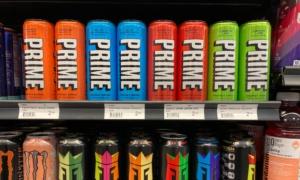Walk past a beverage cooler in any store and you'll be struck by lightning bolts and bold lettering screaming, “Energy!”
The Evolution of Energy Drinks
The origins of energy drinks can be traced back decades before their rise to mass popularity.In 1929, the glucose-based drink Lucozade Energy (formerly Glucozade in 1927) was introduced in the United Kingdom as a nutritional supplement for hospital patients recovering from illnesses, including the flu.
However, it wasn’t until the massive marketing campaigns of Red Bull in Austria and beyond in the late 1980s and 1990s that energy drinks really took off globally. Red Bull, a mixture of caffeine, taurine, B vitamins, and sugar, established the standard energy drink formula many brands mimic today.
The Sinister Side of Sweet Energy Surges
While energy drinks may provide short-term benefits such as alertness and focus, research indicates they can also have negative health effects.How Energy Drinks Affect Your Brain
Researchers are getting more insight about how the combination of ingredients in energy drinks affects the brain, and it isn’t an encouraging picture.1. Neurodegenerative Disorders and Brain Aging
Caffeinated energy drinks can cause neurodegenerative changes in the hippocampus, an essential structure for long-term memory, in male albino rats, according to a 2020 study published in the Anatomy and Cell Biology journal.2. ADHD
Food dyes such as red dye 40, also known as Allura Red AC, are common in energy and sports drinks, and they can decrease the absorption of minerals such as zinc and iron that are needed for growth and development.3. Fatigue, Insomnia, and Headaches
“Sugar and caffeine crashes are very real," Aidan Prud’Homme, a high school student, told The Epoch Times. He consumed one or two energy drinks daily to stay focused and energized at school. Some accompanying side effects included prolonged fatigue, headaches, and sleep problems.4. Anxiety
Energy drinks can increase the level of catecholamines, neurotransmitters involved in the body’s stress response. The spike in these chemicals increases heart rate and blood flow, triggering a fight-or-flight response in some people, leading to anxiety.5. Seizures
There is growing concern over the link between energy drinks and increased seizures. The caffeine in energy drinks promotes the release of glutamate and dopamine, excitatory neurotransmitters, and reduces responsiveness to GABA, an inhibitory neurotransmitter in the central nervous system, thus lowering seizure threshold, according to a recent Nutrition review article. The seizures stopped when people refrained from consuming energy drinks.How Energy Drinks Affect the Rest of the Body
Concerns over energy drinks’ overall health effects have been rising globally. Poland, for example, recently banned sales of energy drinks containing taurine and caffeine to those under 18.1. Diabetes
Energy drinks’ high sugar content can lead to insulin resistance, resulting in elevated blood glucose levels that can, over time, lead to prediabetes and Type 2 diabetes.The addictive properties of caffeine make these drinks a notable concern for children.
2. Stress
The caffeine and other stimulating ingredients in energy drinks spur the adrenal glands to release excessive amounts of the stress hormone cortisol. Over time, this can overwork the adrenals, potentially leading to adrenal exhaustion (pdf), fatigue, and impaired stress response.3. Heart Problems
“The high caffeine content in energy drinks is associated with heart arrhythmias and sudden cardiac death,” Dr. Tummala said. Caffeine and taurine affect cardiac rhythm and repolarization, facilitating arrhythmia, according to a 2022 experimental study using rabbit hearts. At least one human case report has also connected excessive consumption of energy drinks to acute heart failure.Healthy Alternatives
Having encountered troublesome side effects, high schooler Aidan eventually opted for healthier drinks.Health experts stress the importance of parental awareness regarding children’s drink choices.
“One of the critical points I have against energy drinks is the deceptive method of marketing to the consumer who might not know what is being presented to them,” Mr. Eliwa said.
“We have to pay attention to the little details. Check the labels,” he added. “We have to protect our kids.”


